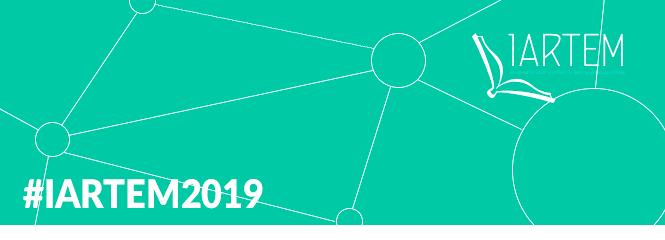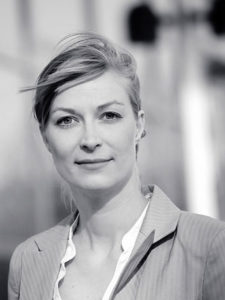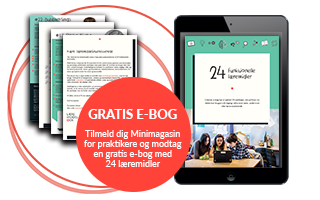Keynotes
We are proud to present our four keynotes at the 15th IARTEM conference 2019.
Justin Reich
Assistant Professor, PhD, Massachusetts Institute of Technology

Beyond “No Significant Differences”: A Reckoning for Race, Advantage, and Online Learning
Since the turn of the millenia, “No Significant Differences” has been a consensus position among education research and policymakers (Russel, 2001), perhaps with a 2010 update that “Blended is a Bit Better” (Means et al 2010). Researchers reviewing the literature of online learning and distance education prior to 2010 have generally found that experimental studies show little difference in educational outcomes based on variations in media, with perhaps a modest advantage found for blended approaches. In the past decade, online learning has exploded, and a new generation of observational and longitudinal research studies–large-scale evaluations of online learning as typically practiced in schools and colleges–raises serious questions about this consensus position. While online learning maybe a suitable substitute for already-educated, already-advantaged learners, new evidence suggests that for vulnerable students–from poverty-impacted communities, racial minorities, or first-generation college students–online courses and media may be a poor substitute for traditional, in-person learning. In this keynote, we’ll explore this recent research, and examine the kinds of stances that researchers, policymakers, and instructional designers need to adopt to prevent new forms of online and digital learning from exacerbating education inequalities.
About
Justin Reich is an educational researcher interested in the future of learning in a networked world. He is an Assistant Professor in the Comparative Media Studies/Writing department at the Massachusetts Institute of Technology, an instructor in the Scheller Teacher Education Program, a faculty associate of the Berkman Klein Center for Internet and Society, and the director of the MIT Teaching Systems Lab. The Teaching Systems Lab investigates the complex, technology-rich classrooms of the future and the systems that we need to help educators thrive in those settings. He is the co-founder of EdTechTeacher, a professional learning consultancy devoted to helping teachers leverage technology to create student-centered, inquiry-based learning environments. He was previously the Richard L. Menschel HarvardX Research Fellow, where he led the initiative to study large-scale open online learning through the HarvardX Initiative, and a lecturer at the Harvard Graduate School of Education.
He earned his doctorate from Harvard University, where he created the Distributed Collaborative Learning Communities project, a Hewlett Foundation funded initiative to examine how social media are used in K-12 classrooms. He writes the EdTechResearcher blog for Education Week, and his writings have appeared in Science, The New Yorker, The Atlantic, Educational Researcher, the Washington Post, Inside Higher Ed, the Christian Science Monitor, and other publications. Justin started his career teaching wilderness medicine, and later taught high school world history and history electives, and coached wrestling and outdoor activities.
http://www.edtechresearcher.com/
Øystein Gilje
Associate Professor, PhD, Department of Teacher Education and School Research, University of Oslo

The influence of 1:1 technology on learners’ understanding and meaning making requires an investigation beyond its effects on students’ achievement.
In this keynote Øystein Gilje presents findings from the ‘Good Example of practice’ study (GEPP) in Norway. The project investigated pedagogical practices in 20 different lower secondary classrooms, with a specific analysis of the use of teaching material, deeper learning experiences for students and changes in students’ and teachers’ interaction. In the keynote, Gilje raises questions around 1:1 technology and how it changes the ways in which we carry out the dialogue in the classroom. What if 1:1 classrooms create less dialogue and collaboration, and more individual work with tools and learning resources?
About
Øystein Gilje (twitter: ogilje) is Associate Professor in the Department of Teacher Education and School Research. He is also the leader of FIKS (forskning, innovasjon og kompetanseutvikling i skolen), a unit at Faculty of Education that helps teachers and school leaders in their professional development.
Gilje has worked in the field of multimodal literacy and educational ethnography, and has over the last 15 years published extensively on technology, identity, literacy and moving images. More recently, he has explored how text books and teaching material are used in 1:1 classrooms in a project on best practice (GEPP).
In this project he has been concerned with how young people learn and are being self-thought in their engagement with moving images and digital media production.
https://www.uv.uio.no/english/research/strategic-research-areas/fiks/competence-development/
https://www.uv.uio.no/english/research/strategic-research-areas/fiks/people/
Annekatrin Bock
Research Fellow, PhD, Georg Eckert Institute
How to research a textbook, if it is no longer a ‘book’?
In times of digital transformation and increasing datafication our research objective, the textbook, is evolving. Born-digital textbooks will soon no longer only be a compilation of printed text and visuals. Rather, they are becoming adaptable, visually diverse, multi-modal, networked, connected textbooks that address different classroom scenarios and different approaches to learning. Taking new trends in educational media production and distribution into consideration, such as adaptive teaching and learning software or cloud-computing, this evolution will likely continue until textbooks are fully transformed into teaching and learning modules that are distributed via online platforms and can be mixed, reused and shared by educators and learners.
Against this backdrop, one of the pressing questions for future textbook and classroom studies will be, how do we research textbooks, if they are no longer ‘books’? Will we be able to use current digital methods or will we need a new and innovative methodology, which responds to the media transformation by adopting its research questions, theoretical background and empirical approach? The keynote speech will discuss the implications for textbook and classroom researchers interested in studying practices, use, effects and content of born-digital textbooks and their reformatted equivalents.
About
Annekatrin Bock is a research fellow at the Georg Eckert Institute in the department Media | Transformation. She currently coordinates the projects on Media Change. She previously worked as a researcher in the Media Studies Department of the Institute for Social Sciences at the Technical University Braunschweig, where she completed her PhD, examining the influence of the changing online availability of media products on their production, distribution and reception. She has lectured at the TU Braunschweig and the Georg-August-University Göttingen on media and reception research, media theory and the qualitative and quantitative methods of communication and media studies.
Annekatrin Bock has undertaken research projects covering areas such as the theoretical and methodological aspects of social media use, as well as the media consumption habits of young people and their acquisition of skills and knowledge. Her current research foci are media and reception studies, studies in digital educational media, as well as online research and visual educational media research.
http://www.gei.de/en/staff/dr-annekatrin-bock.html
Thomas Illum Hansen
Head of Applied Research, PhD, UCL University College

The quality of quality
Toward a semiotics of quality in learning materials
What is a good learning materiel? What do we perceive as good quality within or in relation to learning materials? When we talk about and try to answer these questions, we typically assume a large number of complicated relations and values that are connected with the conception of good teaching, democratic values, agencies, the risk of dehumanization, and, ultimately, the conception of the good life.
The conception of good learning materials is an abstraction. Learning materials are always good for something and for someone and less good for other things and for someone else depending on the specific interaction between actors, materials and technologies in a situation and context.
This presentation attempts to frame and understand the basic normativity in design, use and research of learning materials as a privileged example of how to understand complex and dynamic processes in teaching. The basic assumption is that research in learning materials has a certain prerogative as the focal point for a study of quality in teaching that my analysis will elaborate as a semiotic of quality.
The semiotics of quality will be elaborated and exemplified through a step-by-step analysis of the problem of representation in teaching, a multidimensional quality theory, a sketch of a meta-language on quality in learning materials, and finally different perspectives on research related to the key issue of the quality of learning materials.
The point of departure is the representation problem: How do we bring content into the classroom without fixing and determining it in a school-like form that loses the substantial relation to the surrounding world and reduces the phenomenological qualia? This problem is closely linked to the loss of knowledge and content in teaching pointed out by, among others, Michael Young and Gert Biestas, but in this context, it will be examined as a special semiotic problem in didactics that justifies why learning materials should be assigned more importance in educational research.
About
Thomas Illum Hansen is the head of Applied Research, Faculty of Education and Social Sciences, UCL University College. His area of expertise is research in textbook in use, multimodal texts, digital learning resources, teaching literature, and school development. He was head of the Danish National Center of Excellence for Learning Ressources – Læremiddel.dk – from 2008 to 2018 and is still a member of the board.
He is currently the leader of and researcher in project Quality in Danish and Mathematics [Kvalitet i Dansk og Matematik (KiDM)], a multi-stringed intervention program and RCT-study (170 schools) focusing on inquiry-based teaching in Danish and Mathematic funded by the Danish Ministry of Education. He was leader of and researcher in Demonstration School Project [Demonstrationsskoleforsøg], a multi-stringed intervention program and effect study (14 schools) focusing on digital scaffolding, problem based teaching, 21. Century Skills, and Whole School Approach. He was co-leader and researcher in Measurement of the effectiveness of digital learning resources in primary school in collaboration with Professor Jeppe Bundsgaard, Aarhus University, and consultants from Rambøll Management and Boston Consulting. He earned his PhD at the Department of Culture, Literature and Media at University of Southern Denmark.
Thomas Illum Hansen is a board member of IARTEM, and he has been an adviser for the Norwegian Ministry of Education on quality in learning materials.











